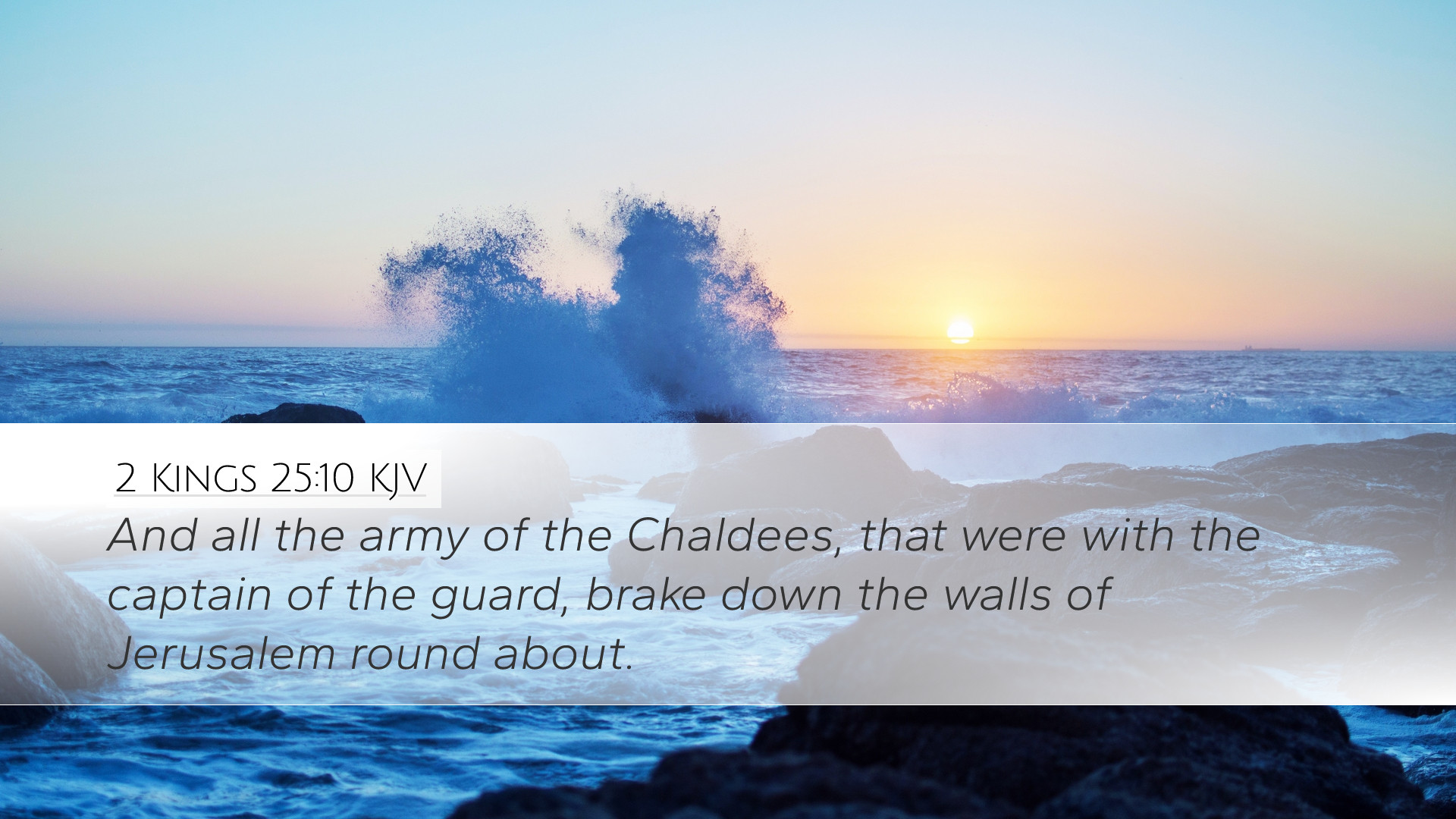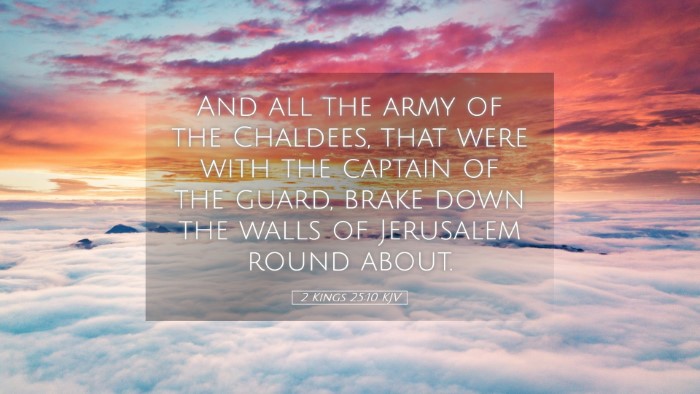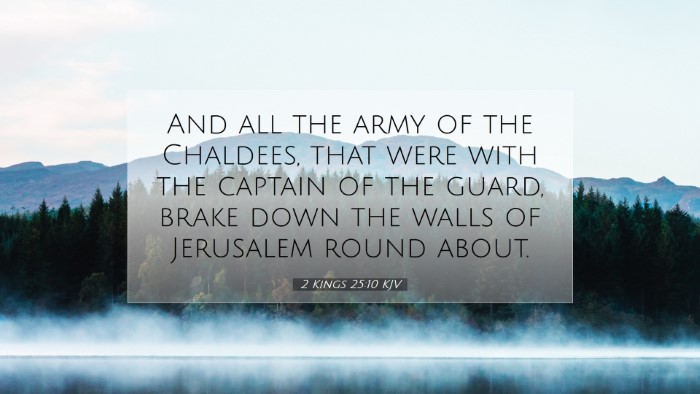Commentary on 2 Kings 25:10
2 Kings 25:10 (KJV): "And the Chaldeans brake down the wall of Jerusalem round about."
This significant verse records the catastrophic fall of Jerusalem, embodying the fulfillment of prophetic warnings and signifying the culmination of Israel’s disobedience to God. The implications of this event stretch beyond mere physical destruction; they encapsulate themes of divine judgment, human agency, and national identity.
Historical Context
The destruction of Jerusalem occurred in 586 B.C. as part of the Babylonian conquest, led by King Nebuchadnezzar II. This event is pivotal in the history of Israel, marking the end of the kingdom of Judah. The city's defenses, represented by its walls, were intended to protect the inhabitants but were ultimately rendered useless against divine purpose and military might.
Theological Implications
This passage serves as a reminder of the seriousness with which God approaches covenant disobedience. The breaking down of Jerusalem's walls is not merely a military tactic; it symbolizes a profound theological truth regarding God’s justice and the inevitable consequences of rebellion against Him.
Commentary Insights
-
Matthew Henry: Henry draws attention to the symbolic meaning of the walls being broken down, noting that they represent both physical security and spiritual integrity. He elaborates that with the breach in the wall, the security provided by God was forfeited due to the people's sin and idolatry.
-
Albert Barnes: Barnes contextualizes the event within the broader narrative of God’s judgment. He explains that the Breaching of Jerusalem's walls was not just an act of war but an act that illustrates God’s sovereignty over nations and His ability to execute judgment as seen in the prophetic messages warned by figures such as Jeremiah.
-
Adam Clarke: Clarke emphasizes the dramatic outcomes of Jerusalem's fall, particularly the theological implications of losing the sacred city, which was central to Jewish worship and identity. He discusses how the destruction serves as a dire warning for future generations about the consequences of straying from God’s ways.
Lessons for Today
For pastors, students, theologians, and Bible scholars, this verse invites reflection on several key themes:
- Divine Judgment and Mercy: The destruction prompts a contemplation of God’s justice and mercy. Though justice is enacted, it is also coupled with hope for future restoration as found in prophetic promises following destruction.
- The Role of Human Agency: The verse can be viewed in light of human choices. The downfall of Jerusalem was due, in part, to the people's continuous rebellion against God, prompting the question of how our choices align with God’s will today.
- National Identity and Spiritual Fortitude: The walls of Jerusalem were integral to the identity of Israel. Their destruction signals a loss of security not only physically but spiritually, encouraging a discourse on how spiritual fortitude can be maintained amidst external challenges.
Conclusion
2 Kings 25:10 encapsulates a turning point for Israel, laden with both despair and opportunity for rejuvenation. Insight from the commentaries enhances our understanding of this moment and how it relates to our lives today. As we delve into this verse, let us consider our own spiritual walls and the importance of resilience in maintaining our covenant relationship with God.


